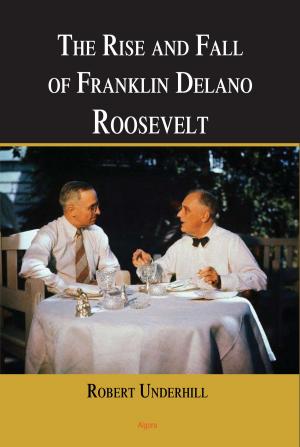The Dawning Age of Cooperaton:
The End of Civilization as We Know It... and Just in Time
Nonfiction, Religion & Spirituality, Philosophy, Political| Author: | Gordon E. Moss | ISBN: | 9780875868752 |
| Publisher: | Algora Publishing | Publication: | December 15, 2009 |
| Imprint: | Algora Publishing | Language: | English |
| Author: | Gordon E. Moss |
| ISBN: | 9780875868752 |
| Publisher: | Algora Publishing |
| Publication: | December 15, 2009 |
| Imprint: | Algora Publishing |
| Language: | English |
True cooperation is a stranger in America. The author, an expert on medical sociology, has conducted research on social stress and cooperative solutions, only to find that we call many things cooperation which are not. This includes mutual aid in pursuit of shared individual goals, democratic decision making, equal sharing, and compromising.
True cooperation is a cultural pattern used to organize cooperative social systems. Participants are group centered and work to achieve group goals. True cooperation produces rapidly adapting information processing social systems that benefit all of the participants. These cooperative organizations and societies become our primary, and very effective, adaptive tools for survival. This book shows what true cooperation is and how to do it, while also showing how competition and individualism prevent us from truly cooperating and creating a cooperative American (and worldwide) society.
This book fills a huge gap in our literature on and understanding of cooperation. As such it is of great value to libraries, organizations, universities, a variety of specialties and professions, and concerned individuals.
The book is written at a more academic level because the material cannot be simplified further without loss of insights and information. It is a friendly academic level with examples and explanations while a variety of more academic issues and analyses are excluded.
True cooperation is a cultural pattern used to organize cooperative social systems. Participants are group centered and work to achieve group goals. True cooperation produces rapidly adapting information processing social systems that benefit all of the participants. These cooperative organizations and societies become our primary, and very effective, adaptive tools for survival. This book shows what true cooperation is and how to do it, while also showing how competition and individualism prevent us from truly cooperating and creating a cooperative American (and worldwide) society.
This book fills a huge gap in our literature on and understanding of cooperation. As such it is of great value to libraries, organizations, universities, a variety of specialties and professions, and concerned individuals.
The book is written at a more academic level because the material cannot be simplified further without loss of insights and information. It is a friendly academic level with examples and explanations while a variety of more academic issues and analyses are excluded.
True cooperation is a stranger in America. The author, an expert on medical sociology, has conducted research on social stress and cooperative solutions, only to find that we call many things cooperation which are not. This includes mutual aid in pursuit of shared individual goals, democratic decision making, equal sharing, and compromising.
True cooperation is a cultural pattern used to organize cooperative social systems. Participants are group centered and work to achieve group goals. True cooperation produces rapidly adapting information processing social systems that benefit all of the participants. These cooperative organizations and societies become our primary, and very effective, adaptive tools for survival. This book shows what true cooperation is and how to do it, while also showing how competition and individualism prevent us from truly cooperating and creating a cooperative American (and worldwide) society.
This book fills a huge gap in our literature on and understanding of cooperation. As such it is of great value to libraries, organizations, universities, a variety of specialties and professions, and concerned individuals.
The book is written at a more academic level because the material cannot be simplified further without loss of insights and information. It is a friendly academic level with examples and explanations while a variety of more academic issues and analyses are excluded.
True cooperation is a cultural pattern used to organize cooperative social systems. Participants are group centered and work to achieve group goals. True cooperation produces rapidly adapting information processing social systems that benefit all of the participants. These cooperative organizations and societies become our primary, and very effective, adaptive tools for survival. This book shows what true cooperation is and how to do it, while also showing how competition and individualism prevent us from truly cooperating and creating a cooperative American (and worldwide) society.
This book fills a huge gap in our literature on and understanding of cooperation. As such it is of great value to libraries, organizations, universities, a variety of specialties and professions, and concerned individuals.
The book is written at a more academic level because the material cannot be simplified further without loss of insights and information. It is a friendly academic level with examples and explanations while a variety of more academic issues and analyses are excluded.















